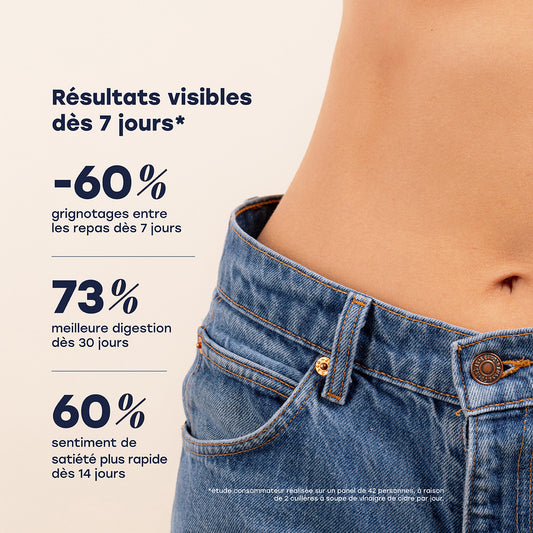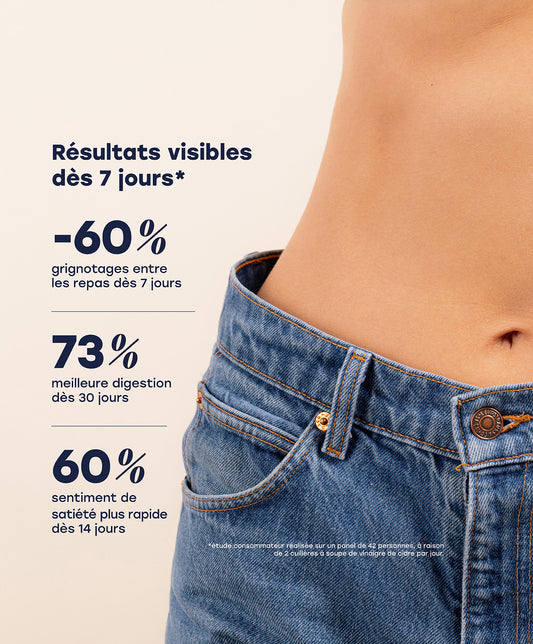How to reduce your sugar consumption
Sugar is ubiquitous in our modern diet, and excessive consumption can have detrimental consequences for our health. From obesity and diabetes to cardiovascular disease, the harmful effects of overconsumption of sugar are well-documented. Fortunately, there are simple and effective ways to reduce our sugar intake while maintaining a healthy and balanced lifestyle. Here are our tips to help you cut down on sugar.
Good habits for consuming less sugar
Read the labels
The first step to reducing your sugar intake is to be mindful of the foods you consume. Learn to read nutrition labels and identify the different names for added sugars, such as corn syrup, brown rice syrup, fructose, glucose, and so on. Avoid packaged foods containing large amounts of added sugar.
Limit sugary drinks
Sugary drinks like sodas, fruit juices, and energy drinks are among the main sources of added sugar in our diets. Opt for water, unsweetened tea, or black coffee to stay hydrated and reduce your sugar intake.
Opt for raw foods.
Whole foods like fruits, vegetables, whole grains, and lean proteins are naturally low in added sugar and rich in essential nutrients. Make them the foundation of your diet to feel full while reducing your sugar intake.
Avoid artificial sweeteners
Although artificial sweeteners are calorie-free, they can increase your sugar cravings and contribute to an addiction to sweet tastes. Opt instead for natural alternatives like stevia or honey in moderation.
Cook at home
Preparing your meals at home allows you to control the ingredients you use and reduce your intake of added sugar. Use herbs and spices to add flavor to your dishes without resorting to sugar.
Be careful with sauces and condiments.
Sauces and condiments like ketchup, barbecue sauce, and salad dressing can contain surprising amounts of added sugar. Opt for sugar-free versions or make your own at home with natural ingredients.
Choose healthy snacks
When you feel like snacking, opt for healthy options like fresh fruit, vegetable sticks with Greek yogurt dip, or unsalted nuts. Avoid energy bars and processed cookies high in added sugar.
Beware of "fat-free"
Foods labeled as "low-fat" or "light" often contain more sugar to compensate for the lost flavor due to the reduced fat content. Opt for whole-grain and natural versions of foods to avoid marketing traps.
Habits to adopt and maintain!
Be patient and persistent.
Reducing sugar intake can take time and requires patience and perseverance. Set realistic goals and make gradual changes to adopt a healthier diet in the long term.
Add protein to every meal
Protein can help you feel full longer, which can reduce sugar cravings between meals. Include protein sources like chicken, fish, eggs, legumes, and nuts in every meal to maintain stable blood sugar levels.
Choose minimally processed products
If you can't avoid processed foods, choose natural and unsweetened versions whenever possible. For example, opt for plain, unsweetened yogurt instead of flavored yogurt, or cereal with no added sugar instead of sweetened cereal.
Avoid extreme diets
Before embarking on drastic diets that completely eliminate carbohydrates or sugar, which can be difficult to follow in the long term and lead to cravings, explore old-fashioned home remedies for losing belly fat , while adopting a balanced and varied diet that includes a variety of nutritious foods.
Practice moderation
It's important to remember that sugar isn't forbidden, but it should be consumed in moderation. Treat yourself to small sweet indulgences from time to time, but be careful not to overdo it.
Explore healthy alternatives to desserts
If you have a sweet tooth, explore healthy alternatives to traditional, sugary desserts. For example, make homemade desserts with natural ingredients like fresh fruit, dates, or high-cocoa dark chocolate.
By following these simple tips, you can reduce your sugar intake and adopt a healthier, more balanced diet. Not only will you feel better physically, but you'll also help prevent many chronic diseases associated with excessive sugar consumption. Take care of your health by making informed choices for yourself and your family.


























